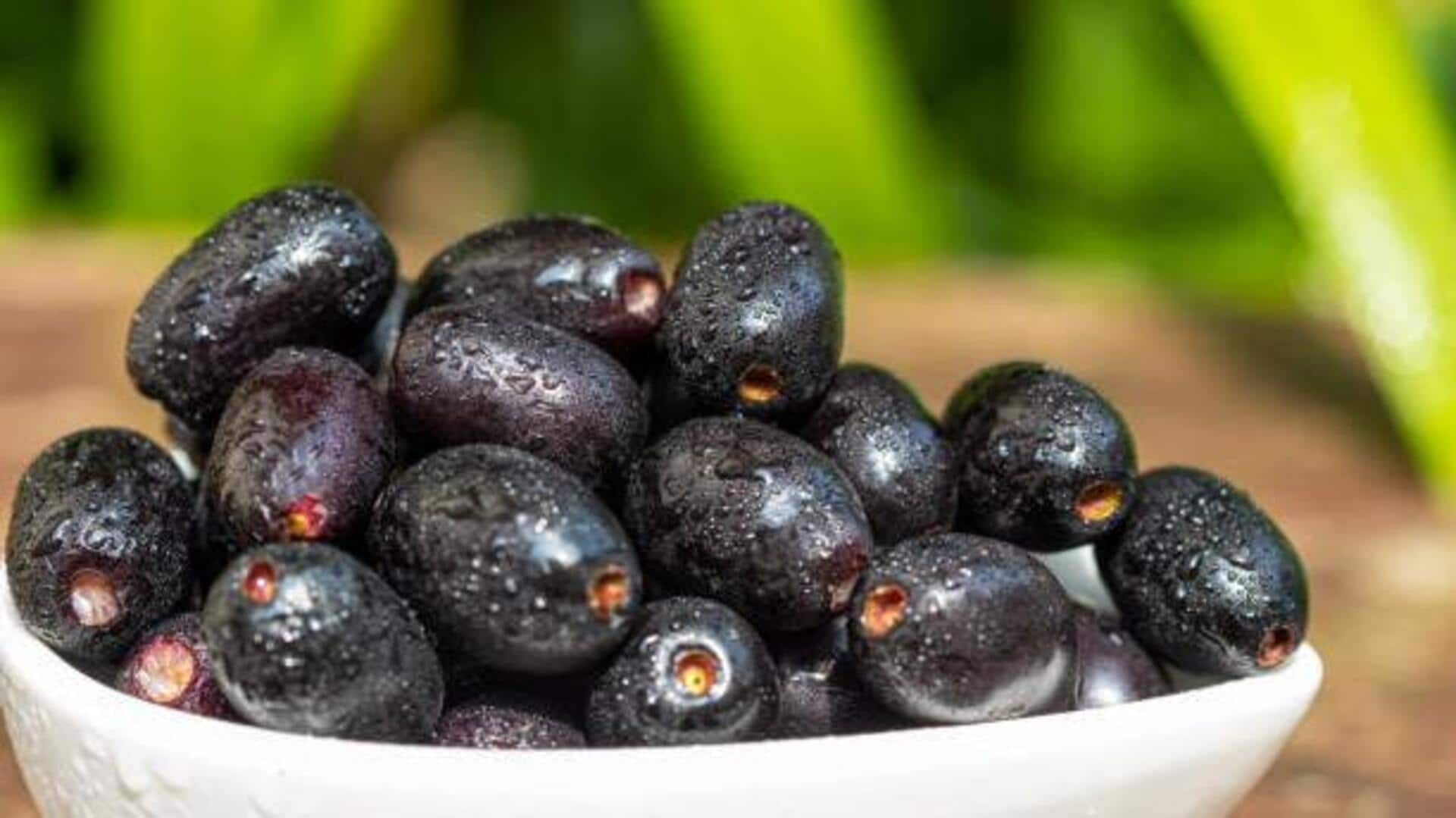
Why jamun is the next big superfood
What's the story
As it turns out, African jamun, a relatively lesser-known fruit, is making a mark as a desert superfood. Adaptable to the arid climates, the fruit is packed with health benefits and nutrition. Its potential to flourish in harsh conditions makes it a staple food for desert-dwelling communities. Here's why African jamun is a superfood gem, and how it helps with nutrition and sustainability in deserts.
#1
Nutritional powerhouse of vitamins and minerals
African jamun is packed with essential vitamins and minerals that are important for staying healthy. It has vitamin C, which boosts the immune system, and vitamin A, which is important for eye health. The fruit also offers minerals such as potassium and calcium that keep the bones healthy and regulate blood pressure. These nutrients make African jamun a great dietary addition for nutrient-scarce desert-dwellers.
#2
High antioxidant content boosts health
The high antioxidant content of African jamun contributes significantly to overall health. Antioxidants help deal with oxidative stress by neutralizing free radicals that can damage cells. This property may reduce the risk of chronic diseases like heart disease and diabetes. Eating antioxidant-rich foods such as African jamun can be especially helpful to people exposed to environmental stressors prevalent in desert regions.
#3
Adaptability to arid climates ensures availability
One of the key reasons African jamun stands out as a superfood is its adaptability to arid climates. The plant's ability to grow with minimal water makes it an ideal crop for desert agriculture. This resilience ensures a steady supply of nutritious food even during drought conditions when other crops might fail. By cultivating African jamun, communities can improve food security while conserving precious water resources.
#4
Potential economic benefits from cultivation
Cultivating African jamun not just offers nutritional benefits but also ensures economic advantages for desert communities. The fruit can be converted into a variety of products such as jams or juices, opening avenues for local businesses and generating income streams. By investing in the cultivation and processing of this resilient crop, communities can boost their economic stability and promote sustainable agricultural practices suited to their environment.